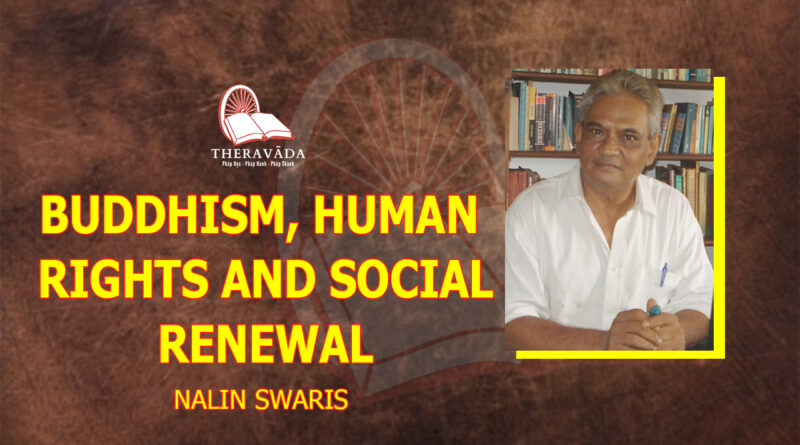Buddhism, Human Rights and Social Renewal
Nalin Swaris
Introduction
[11] I am aware that when I am teaching Dhamma to companies of many hundreds, each individual thinks thus about me: “The Teacher Gotama is teaching especially for me.” But [it] should not be understood thus. When a tathāgata teaches Dhamma to others, he does so only for general upliftment (Majjhima Nikāya I.249).
The construction of “a religion called Buddhism” by Western scholars and Christian theologians towards the end of the eighteenth century, and their presentation of Siddhattha Gotama Buddha purely as a religious leader, has distracted attention from his teachings on social, political and economic affairs. The impression given suggests that he was primarily concerned with personal liberation from cosmic existence and that the way to realise this came to him in a flash of mystical illumination, even though the Buddha repeatedly insisted that his Teaching was not based on mystical insight or intuition. Determined to realise moral perfection, he broke through to an understanding about the root cause of human suffering, in all its dimensions, after six years of relentless search, investigation and experimentation. Especially in the West, the Buddha’s Way is generally understood as a way of meditation for achieving inner tranquillity, ideally practised in solitude, away from the vexations of everyday life. In the hybrid forms of Buddhism propagated in the West today, the social outreach of his Ethical Path is either ignored or underplayed.
Buddhism-Human-Rights-and-Social-RenewalDOWNLOAD PDF EBOOK HERE

